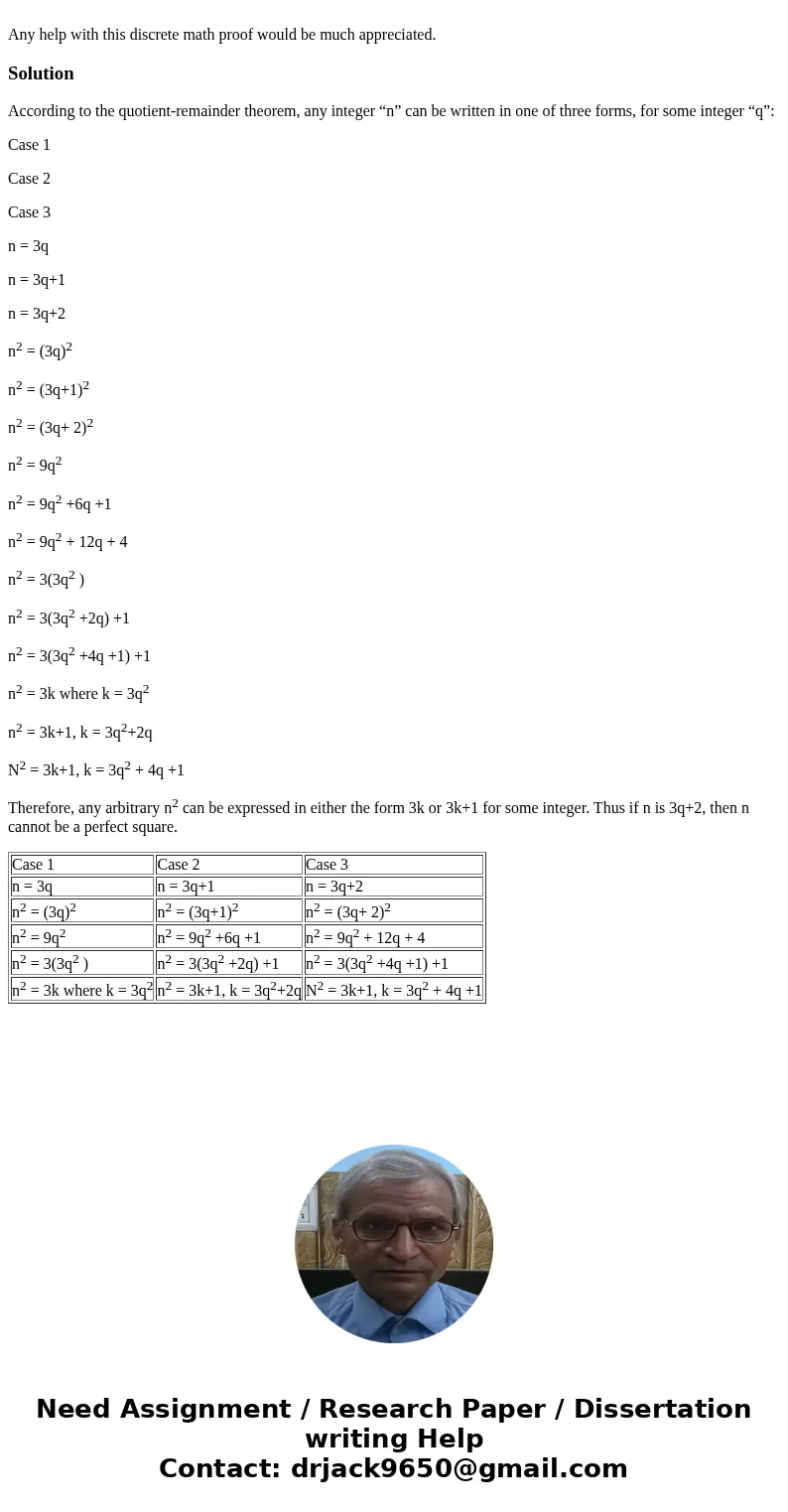Any help with this discrete math proof would be much appreci
Any help with this discrete math proof would be much appreciated.
Solution
According to the quotient-remainder theorem, any integer “n” can be written in one of three forms, for some integer “q”:
Case 1
Case 2
Case 3
n = 3q
n = 3q+1
n = 3q+2
n2 = (3q)2
n2 = (3q+1)2
n2 = (3q+ 2)2
n2 = 9q2
n2 = 9q2 +6q +1
n2 = 9q2 + 12q + 4
n2 = 3(3q2 )
n2 = 3(3q2 +2q) +1
n2 = 3(3q2 +4q +1) +1
n2 = 3k where k = 3q2
n2 = 3k+1, k = 3q2+2q
N2 = 3k+1, k = 3q2 + 4q +1
Therefore, any arbitrary n2 can be expressed in either the form 3k or 3k+1 for some integer. Thus if n is 3q+2, then n cannot be a perfect square.
| Case 1 | Case 2 | Case 3 |
| n = 3q | n = 3q+1 | n = 3q+2 |
| n2 = (3q)2 | n2 = (3q+1)2 | n2 = (3q+ 2)2 |
| n2 = 9q2 | n2 = 9q2 +6q +1 | n2 = 9q2 + 12q + 4 |
| n2 = 3(3q2 ) | n2 = 3(3q2 +2q) +1 | n2 = 3(3q2 +4q +1) +1 |
| n2 = 3k where k = 3q2 | n2 = 3k+1, k = 3q2+2q | N2 = 3k+1, k = 3q2 + 4q +1 |

 Homework Sourse
Homework Sourse